Biased
Tinubu’s Lagos First Agenda: Where Is the Equity, Mr. President?- Salihu Tanko Yakasai
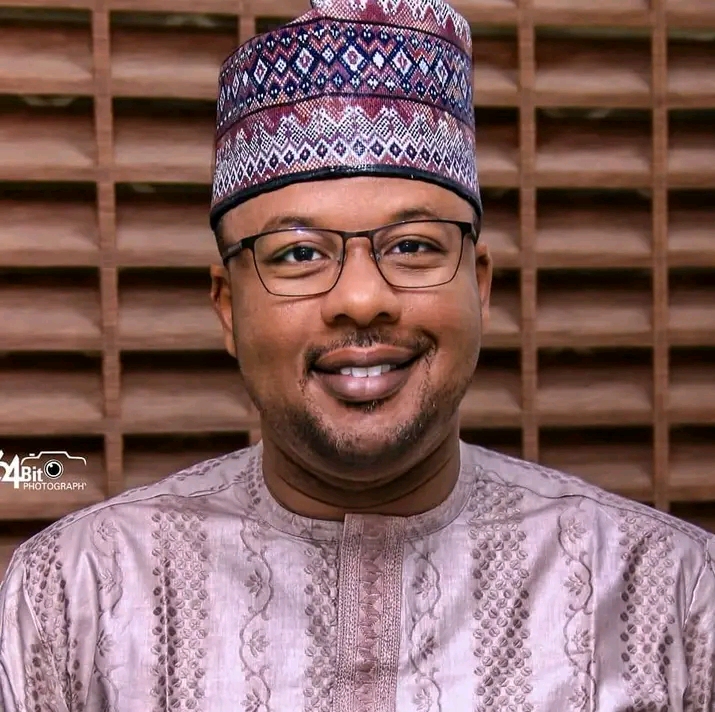
By Our Correspondent
As the federal government continues to roll out multi-trillion naira infrastructure projects across Lagos State, critics are questioning the fairness of President Bola Ahmed Tinubu’s project approvals, accusing the administration of unprecedented favoritism towards the president’s home state.
Salihu Tanko Yakasai, popularly known as Dawisun Kanawa and a prominent voice from Kano, has taken to social media and public forums to express deep concerns over what he describes as the “Lagos-lakonization” of the Nigerian presidency.
In a strongly-worded statement issued on Friday, August 2, 2025, Yakasai challenged the rationale behind the allocation of resources under Tinubu’s administration, alleging that the scale of federal investments in Lagos within just two years is not only disproportionate but also unjustifiable in a country yearning for balanced development.
Here are some of the high-profile projects cited by Yakasai that have either been awarded, approved, or already commenced in Lagos under President Tinubu’s watch:
Lagos-Calabar Coastal Highway – N15 trillion
Lagos-Ibadan Expressway – N196 billion
7th Axial Road – $651 million (approx. N1.2 trillion)
Rehabilitation of Murtala Muhammed International Airport – N712 billion
Perimeter Fencing & Airport Security Upgrade – N50 billion
Lagos-Shagamu Road – N11 billion
Lekki-Epe Service Lane Expansion – N158 billion
Lagos-Badagry to Sokoto Super Highway – N1.6 trillion
Rehabilitation of four key Lagos bridges – Cost undisclosed
Proposed Lagos Light Rail Project Loan – $2 billion (approx. N3.2 trillion)
University of Lagos Independent Power Project
Renewed Hope City (Lagos Chapter)
“While I agree that Lagos, as Nigeria’s commercial nerve centre, deserves top-tier infrastructure, it’s hard to ignore the glaring imbalance in project distribution,” Yakasai said. “Kano, my home state, and many other regions are left clinging to audio approvals with no boots on the ground, no heavy machinery, and no visible development.”
Yakasai emphasized that while loyalty to one’s roots is expected, the president’s duty upon election is to serve all Nigerians equally—regardless of region, religion, or electoral support. “I understand ‘Emi Lokan’, but the question now is whether we’re witnessing ‘Emi Lokan’ or ‘Lagos Lakon’,” he asked rhetorically.
He further noted that even the broader South West appears to be getting sidelined, with most major projects heavily concentrated in Lagos alone. “If this is what we see in just two years, what should Nigerians expect if Tinubu serves a full eight-year term?” he questioned.
The outspoken Kano-born political analyst warned that this trend, if not checked, could worsen the country’s already fragile unity. He called on well-meaning Nigerians, especially Lagosians with conscience, to reflect on the implications of this lopsided development pattern.
“Every state has potential—economic, industrial, and agricultural. With similar levels of investment, Kano, Enugu, Port Harcourt, or Maiduguri could rise to economic relevance. But equity must guide national planning. Prosperity must not be exclusive,” Yakasai added.
His remarks have sparked conversations on social media and in political circles, with many Nigerians echoing his sentiments, while others argue that Lagos remains the nation’s economic hub and deserves priority.
But for Yakasai and others concerned, the argument isn’t about whether Lagos deserves investment—it’s about whether the rest of Nigeria deserves neglect.
“This is not about envy or rivalry. It’s about justice, fairness, and national unity. No part of Nigeria should be treated like a second-class citizen in the country they call home,” he concluded.
As the Tinubu administration marks its second year in office, pressure is mounting for a more balanced and inclusive approach to governance—one that prioritizes national cohesion over parochial interests. Whether the president will heed these calls remains to be seen.
Biased
CENSUS: Criticism Trails Composition of National Housing and Census Committee
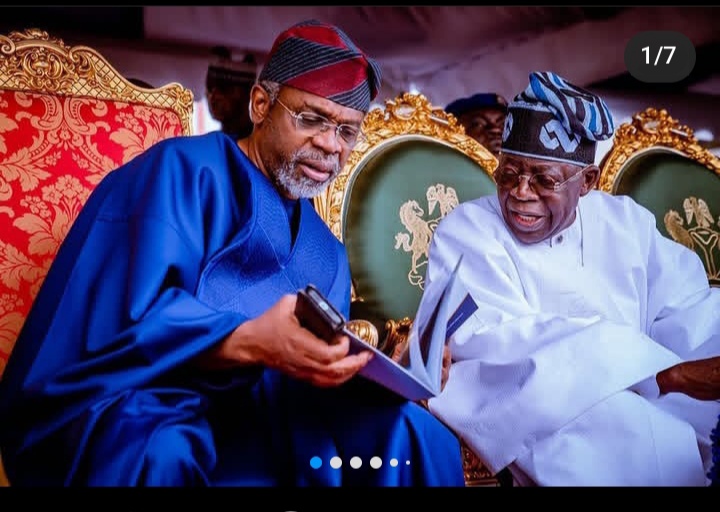
By Our Correspondent
The recent inauguration of the National Housing and Census Committee by the Federal Government has sparked widespread criticism over the regional imbalance in its composition.
The eight-member committee, unveiled on Wednesday, was tasked with exploring financing options and determining the operational mode for the upcoming national census. It is chaired by the Minister of Budget and Economic Planning, Senator Atiku Bagudu, who hails from the North-West geopolitical zone.
The announcement was made by the Chief of Staff to the President, Femi Gbajabiamila, who represented President Bola Ahmed Tinubu during the inauguration. According to presidential aide Bayo Onanuga, the committee has been given a three-week timeline to submit its report.
Critics have raised concerns about the overwhelming representation of members from the South-West region, with five out of the eight members reportedly drawn from that part of the country. Many observers view this as a lopsided arrangement that does not reflect Nigeria’s federal character.
Also on the committee is the Chairman of the National Population Commission (NPC), Hon. Nasir Isa Kwarra, who serves as the secretary. He represents the North-Central region.
The criticisms are centered on the need for inclusivity and national balance, especially on a sensitive national issue such as the census, which has far-reaching implications for resource allocation, political representation, and development planning.
Analysts argue that a more regionally balanced committee would have promoted broader confidence in the process and minimized suspicions of bias or favoritism.
As the committee begins its work, stakeholders are calling on the government to ensure that the final report reflects the interest of all Nigerians and that the process leading to the national census is transparent, inclusive, and credible.
The forthcoming census is expected to be Nigeria’s first in nearly two decades and is seen as a crucial step toward effective governance and national planning.
Biased
CBN’s Regional Appointments Expose Deep-Rooted Bias—Time to Scrap the Federal Character Commission

By BUKAR Mohammed
The recent appointment of 16 new directors by the Central Bank of Nigeria (CBN), released on March 6, 2025, has once again exposed deep-rooted regional favoritism within Nigeria’s federal institutions.
The list reveals a glaring marginalization of the northern region, with an overwhelming majority of appointees hailing from the southern part of the country.
This unprecedented imbalance raises serious concerns about fairness, inclusivity, and the credibility of Nigeria’s apex financial institution.
A Breakdown of CBN’s Regional Bias
A critical analysis of the appointments indicates that out of the 16 newly appointed directors, 12 are from the southern region (South-West, South-South, and South-East), while only 4 are from the northern region (North-East, North-West, and North-Central).
This staggering 75%-25% imbalance is unacceptable for an institution that should represent all regions equally.
Breakdown by Region:
– South-West: 6 Directors
– South-South: 3 Directors
– South-East: 3 Directors
– North-Central: 1 Director
– North-East: 1 Director
– North-West: 2 Directors
With 75% of the appointments going to the south and only 25% to the north, it is evident that the principles of fairness, equity, and federal character have been completely ignored.
A National Institution Hijacked by Regional Sentiments
The CBN, as a crucial institution responsible for monetary policy, financial stability, and economic growth, must adhere to the highest standards of governance.
It should respect the rule of law, uphold good corporate governance, and remain free from corruption and regional bias.
However, this latest round of appointments illustrates a dangerous trend of state capture, where key institutions are controlled by a particular group for political or economic advantage.
This brazen act of favoritism is a direct assault on national unity and economic fairness. The CBN is meant to serve all Nigerians, not just a privileged few from one region.
The Silence of Northern Elders: A National Disgrace
Even more disgraceful is the deafening silence from northern elders, political leaders, and stakeholders who have chosen to look the other way.
These individuals, who once claimed to advocate for fairness and equity, have now become mute in the face of evident injustice.
Their silence is not only disappointing—it betrays the people they claim to represent. If they had any integrity left, they would challenge the president’s blatant disregard for federal character and fair representation.
The Federal Character Commission: A Useless Watchdog That Should Be Scrapped
It is now clear that the Federal Character Commission (FCC) has outlived its usefulness.
Established to ensure equitable representation in federal appointments, the FCC has utterly failed in its constitutional duty.
How did such a reckless decision by the CBN management escape the FCC’s notice? Why is the commission allowing federal institutions to be hijacked by one region while others are sidelined? If the FCC cannot enforce fairness in appointments, it should be scrapped immediately.
CBN Under Cardoso: A House of Controversy
Since taking office, CBN Governor Olayemi Cardoso has led the institution into one controversy after another. From policy inconsistencies to failing monetary strategies, his leadership has raised serious doubts about the bank’s credibility.
This latest appointment scandal further demonstrates that his administration is rooted in regional favoritism rather than professionalism and economic competence.
How can Nigerians trust the CBN when its leadership is blatantly biased and politically motivated?
A Call for Immediate Redress
Nigeria is a diverse and multi-ethnic nation, and no region should feel marginalized in national appointments.
If this injustice is not corrected, it could fuel regional tensions and further divide the country.
The presidency, National Assembly, and relevant authorities must urgently address this imbalance before it escalates into a full-blown crisis.
The CBN must immediately review these appointments and ensure a more equitable distribution across all regions.
Anything less would confirm that this administration is more interested in consolidating power through institutional capture than in promoting national unity.
The CBN should not be a tool for regional domination; it is a national institution that must reflect the diversity, fairness, and unity of Nigeria.
Anything short of that is a betrayal of national trust and a shameful abuse of power.
BUKAR Mohammed is a public analyst from Kano.
-
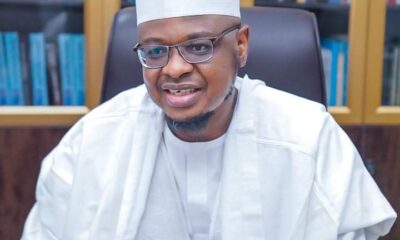
 Leadership1 year ago
Leadership1 year agoBreaking: African Union Appoints Pantami as Co-Chair of the 4th Industrial Revolution Policy Council
-
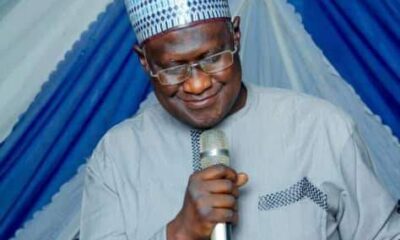
 Appointment11 months ago
Appointment11 months agoGombe State Indigene, Appointed New Vice Chancellor (ATBU)
-

 Politics2 years ago
Politics2 years agoFormer Gombe State APC Promoters Forum Chairman Attacked Following Political Commentary
-
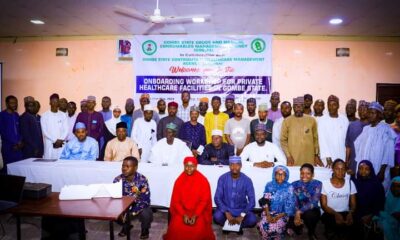
 Health1 year ago
Health1 year agoGombe State Organizes Onboarding Workshop for Private Healthcare Facilities
-
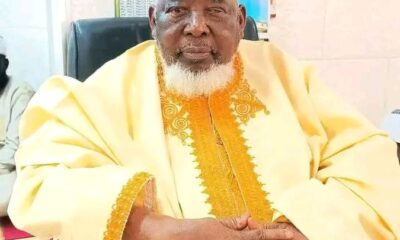
 Death6 months ago
Death6 months agoProminent Nigerian Islamic Scholar, Sheikh Sa’idu Hassan Jingir, Passes Away
-
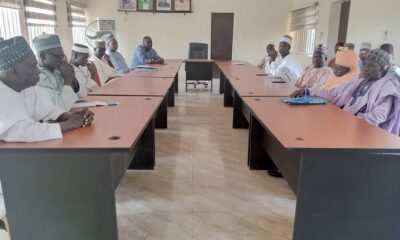
 Water1 year ago
Water1 year agoGombe Government Mobilizes Stakeholders to Combat Illegal Water Connections
-
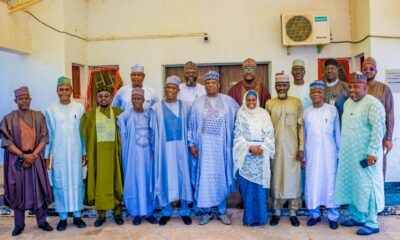
 Politics1 year ago
Politics1 year agoGombe State Inaugurates Human Capital Development Council
-
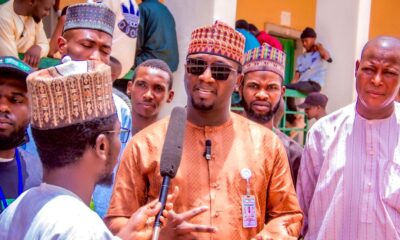
 Politics1 year ago
Politics1 year agoGombe State Launches Presidential Palliative Program (PPP) to Aid Small Businesses
